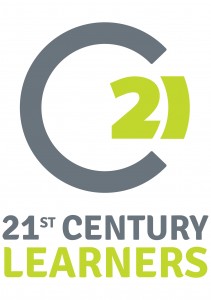Teaching through and for Dialogue

This is the text of a short article written for the March 2018 edition of The Stoke-on-Trent Research School’s e-newsletter. You can access the full newsletter here.
At one time I was apologetic when talking to teachers about the role of dialogue in education. It felt like I was bothering them with my niche interest when they had more important things to be getting on with. These days I’m bolder: I think that teaching through dialogue is indispensable to the meaningful development of knowledge and that teaching for dialogue should be a key aim – perhaps even the aim – of education itself. Here’s why:
I don’t think meaningful knowledge can simply be transmitted from one person to another. Imagine you’ve never heard the term ‘fake news’. I can give you a definition which you can learn, write down in your media studies exam and get the marks. Job done, right? But what if the next question asks you to explain the significance of the phenomenon? I can offer you an explanation, but you need to play an active role in making meaning of it. You need to connect the idea of fake news to lots of other ideas you may already have (about the value of truth in the free press and democracy, for example). If you’re a novice in the field, you might value some examples of fake news and its consequences to help you to make those connections and to begin to understand the significance of the idea. You might also value trying to explain your new understanding to others: can you articulate the hazy idea in your mind? Can you answer their unexpected questions? Can you tune in to the differences between their understandings and yours and use them as a resource to build a better understanding? Is there a chance that this dialogue will help you to understand why you should care about fake news and motivate you to want to learn more? Is there a chance that it will help you to get the marks on that second question?
Now imagine you are a year four pupil who has never thought about the scientist’s (or the science teacher’s) view of ‘force’ before. Might a similar process of dialogue help you to come to make sense of it and come to appreciate its significance and interest? Might it provide the teacher with a window onto your understanding and enable her to better respond to you? I think it would. I think it would be invaluable.
I think teaching for dialogue is a way of teaching thinking. In dialogues we learn to engage with other points of view (about fake news, force or football) in caring, collaborative, creative and critical ways. These dispositions can be internalised; they can become part of the way we think. It’s true to say that such ‘thinking skills’ are of no use without knowledge, but I think it’s also true to say that knowledge is of little use without the capacity to think well.
I think education is a process of inducting children into bigger dialogues. I want children to come to know ‘the best that has been thought and said’. But I don’t want them to see knowledge as something fixed and final that was ‘discovered’ by dead people long ago. I want them to see that knowledge is provisional and evolving. I want them to understand that there are always other perspectives with something valuable to offer. I want them to come to understand the significance of the knowledge and its relevance to their lives, and to aspire to take knowledge forward into the future. In short, I want them to join the ongoing dialogues (of mathematics, geography and politics, for example) that make up the overall dialogue of humanity.
I think we have a moral obligation to teach for dialogue. The way we respond to ‘the other’ (be that in person, in text or on the internet) is of central importance. The philosopher Dmitri Nikulin writes that ‘Dialogue is a therapy – perhaps the therapy – against the misrecognition of one person by another’. In a world in which so much suffering is caused by the failure of one person to recognise the humanity of another, I would argue that not teaching dialogue is an abdication of our moral responsibility as educators.
Of course this is just my perspective on Dialogic Education – many others are available. You might find the articles listed below to be a useful way in to the dialogue!
Alexander, R. (2017). Developing Dialogue: Process, Trial, Outcomes. Available at http://www.robinalexander.org.uk/wp-content/uploads/2017/08/EARLI-2017-paper-170825.pdf [accessed February 2018]
Phillipson, N. (2018). A Perspective on Dialogic Education. [Blog] Available at http://21stcenturylearners.org.uk/?p=1073 [accessed March 2018)
Wegerif, R (2017). Defining Dialogic Education. [Blog] Available at http://www.rupertwegerif.name/blog/defining-dialogic-education [accessed March 2018]


